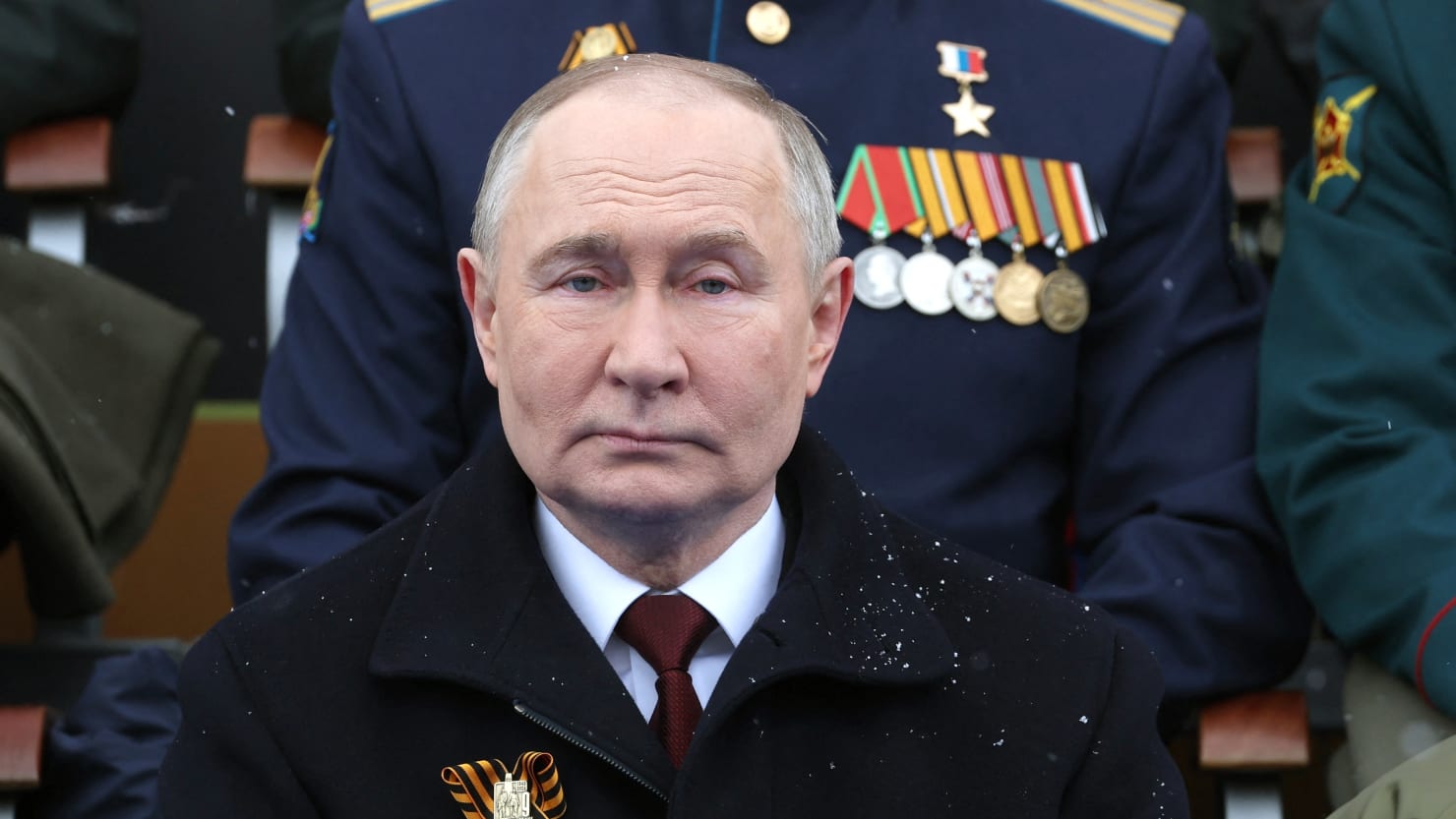More than two years after the start of the full-scale war against Ukraine and an endless string of reports about dysfunction and chaos within the Russian military, the Kremlin is now openly admitting its army is a complete mess.
The latest indication came with the arrest of Russia’s fourth high-ranking military official in a month on Thursday: The army chief’s deputy, Lieutenant-General Vadim Shamarin, is being held in pre-trial detention and faces up to 15 years behind bars on corruption charges. The Investigative Committee says Shamarin accepted a bribe on an “especially large scale” while awarding state contracts.
Bizarrely, his arrest came just days after Vladimir Putin told a meeting of defense officials the General Staff was in great shape—running “rhythmically” and operating “successfully.” He said no changes were planned there.
The downfall of Shamarin, who was in charge of the military’s communications in Ukraine, was welcomed by Russian troops who blamed the general’s dreadful work performance for thousands of deaths on the battlefield.
It also seemed like posthumous greetings from Wagner Group founder Yevgeny Prigozhin, whose rageful demands for the ouster of top military leadership during his short-lived mutiny last year seem to increasingly be coming to fruition. He got his wish earlier this month to see Sergei Shoigu removed as defense minister, and now the Kremlin’s purge of military leaders has inched closer to Valery Gerasimov, chief of the General Staff.
It’s perhaps no coincidence that Wagner-linked Telegram channels re-upped Prigozhin’s year-old comment this week that “Shoigu and Gerasimov turned this war into entertainment, and because of their whims five times more guys died than should have.”
Even with the arrest of Shamarin, it’s clear many troops still hold a grudge.
“Even 15 years in prison is nothing” compared to the “several thousand people who literally died” due to the poor comms he provided, one Wagner-linked Telegram channel wrote.
The Kremlin, meanwhile, has patted itself on the back for the anti-corruption spree, while insisting there is no widespread purge underway, despite the four high-ranking officials going down in rapid succession.
“The fight against corruption is an ongoing effort. It is not a campaign. It is an integral part of the activities of law enforcement agencies,” Kremlin spokesman Dmitry Peskov told reporters Thursday.
Ex-Deputy Defense Minister Timur Ivanov was the biggest name to be arrested last month, followed by Defense Ministry personnel directorate chief Yury Kuznetsov, and former army commander Maj. Gen. Ivan Popov (who investigators have since asked to release on house arrest). All are facing corruption-related charges.
Left unanswered is why Moscow has only embarked on this anti-corruption fight now, long after reports of humiliating losses on the battlefield and widespread dysfunction exposed the rot at the center of the army.
It seems telling that the Kremlin is cleaning house as it’s become more and more reliant on China to keep the war machine afloat. In his visit to China last week, Putin appeared to suck up to corruption-obsessed Chinese President Xi Jinping, revealing that his family was learning Mandarin and calling himself and his Chinese counterpart “as close as brothers.” All of this, of course, came as the Russian leader needs an ally more than ever—ideally one with money. Which would explain why Putin had the governor of Russia’s Central Bank, his finance minister, and his economics adviser in tow.

